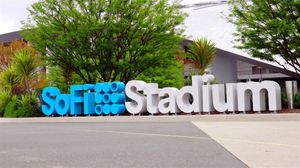With food shortages resulting from Russia’s invasion of Ukraine, Monsanto Co. is now showing indications of recouping its $63 billion investment by Bayer AG in the corporation.
With a 41 percent increase in the previous year, it’s one of Europe’s best-performing large-cap stocks this year. Corteva Inc. and BASF SE, BASFY -0.04 percent, both based in Germany, are in the second position. A 0.45% drop in the CTVA
By purchasing Monsanto in 2018, Bayer hoped to raise sales by combining its chemicals business with that of its American rival’s seeds and high-tech crops, which are under growing pressure from farmers to become more productive with decreasing amounts of arable acreage. Monsanto’s Roundup herbicide has been linked to several cancer cases, and Bayer has been the target of a wave of lawsuits.
A year after the deal’s closure, the company’s market value had dropped by 40%, making it one of the worst corporate takeovers in recent memory.
Despite Bayer’s ongoing legal battles over its roundup herbicide, its stock price has performed well so far this year, indicating that investors are beginning to see the benefits of the merger. Crop Science at Bayer, the company’s largest segment, grew sales by 22% in the first three months of this year to €8.45 billion, or $9.03 billion.
Sales of Bayer’s pharmaceutical sector, which is the second-largest in the company, climbed 2.6 percent compared to sales of the consumer-health unit, which distributes aspirin.
Markus Manns, a portfolio manager at German asset management Union Investment, said that Bayer’s agricultural-chemicals division had outperformed forecasts for the third quarter in a row. Manns, who owns shares in Bayer, cautioned that three quarters isn’t a reliable indicator of long-term trends, but that it’s a promising indication.
As the world’s largest maize and wheat exporter, Ukraine has been unable to send large supplies to international markets because of the Russian invasion. Food shortages have resulted, which has led to an increased demand for Bayer’s genetically modified agricultural seeds and other weedkiller and pest-control products.
Herbicide products based on glyphosate, which Bayer received as part of the Monsanto acquisition, have been a major part of the crop science division’s recent success. Glyphosate supply from China was halted due to production and energy interruptions, resulting in increased pricing. China generates 60% of the world’s total production, while Bayer is responsible for the remaining 40%.
The herbicide glyphosate is extensively used by farmers in the United States and other countries to control weeds, despite claims that it is harmful. Due to ongoing lawsuits over the safety of Roundup, Bayer has set aside $16 billion to cope with it. This herbicide is safe for human consumption, according to the Environmental Protection Agency (EPA).
Since last year, Bayer has been seeking to resolve the legal battle over Roundup by requesting the US Supreme Court to overturn a $25 million judgment award in the instance of Edwin Hardeman of California. His cancer was allegedly caused by Roundup, which he has blamed for its use.
As a result of this recommendation, Bayer’s shares declined 6.2 percent that day, which reduces the probability of this case being heard by an appeals panel. Thousands of lawsuits against Bayer might be dismissed if a judge rules in favor of the company.
In the meantime, Bayer is optimistic that the Supreme Court will consider the case and overturn the Hardeman ruling. According to a Bayer representative, the decision “would impair the capacity of enterprises to depend on official acts performed by experienced regulatory authorities and to solve today’s serious food security and environmental concerns.”
The case might be heard by the Supreme Court as early as June 9th.
Some investors are turning their backs on the stock because of the ongoing uncertainty. Kay Eyre, a portfolio manager at Scotland-based investment company Abrdn, stated, “I simply can’t accept the legal risk.”
Following a selloff in May, experts say Bayer’s stock has rebounded, suggesting that some investors are ready to gamble on the company’s improved operations and its relatively modest valuation. According to S&P Global Market Intelligence, Bayer’s stock trades at about nine times expected profits. In comparison, Corteva has been cited 23 times. The stock price of Corteva has increased by 31% so far this year.
Analysts point to Bayer’s pharmaceutical branch as an additional point of differentiation. Asundexian, an oral blood thinner in the company’s development pipeline, is intended to reduce the risk of stroke and blood clots without producing excessive bleeding. Citigroup analyst Peter Verdult predicts that if the medicine is effective, it may generate more than $6 billion in yearly sales.
The post Monsanto Co. To Pay off Bayer AG’S $63 Billion Investment In The Company appeared first on Best Stocks.






